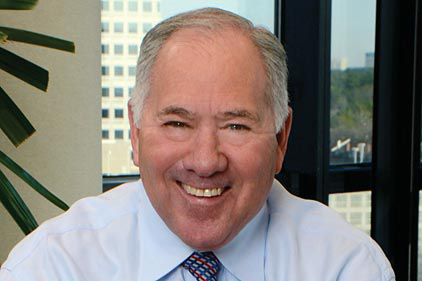Employee handbooks have long been an essential workplace tool. Regardless of size, all employers should maintain a handbook. Handbooks often provide an employer’s history as well as its mission statement and guiding philosophy. They spell out the rules what is expected of employees and what the employer will provide in return. They have become ubiquitous and for the most part non-controversial. However, with the current majority on the National Labor Relations Board (NLRB or board) and even more so its general counsel, employee handbooks may once again become a potential source of liability for unsuspecting employers.
The National Labor Relations Act (NLRA or Act) protects both the “union” and “concerted” activities of employees. In recent years, with union activity substantially diminished, the NLRB has focused a great deal of time and attention on issues involving what are referred to as “concerted protected activities.” The term refers to employees acting together (in concert) on matters related to their terms and conditions of employment. Employees have the right to discuss and engage in advocacy regarding workplace concerns and to act for “mutual aid or protection.” It includes not only employees acting as a group, but also a single employee speaking or acting on behalf of himself and others. Any employer interference with such concerted, protected activity is considered a violation of the rights of employees set forth in Section 7 of the NLRA.
Historically, under the concerted activity framework, the board has challenged employee handbook rules and policies that impinge on those employee rights. Handbook rules on confidentiality, inappropriate communications, non-disparagement, social media, media communications, civility, respectful and professional conduct, offensive language, camera prohibitions, employee loitering and access limits on off-duty employees, and similar restrictions on employees were frequently found unlawful.
In 2017, an NLRB majority comprised of a majority of members appointed by President Trump significantly limited the ability of the board to micromanage handbooks. It did so in a case called The Boeing Co., involving a handbook rule restricting the use of cameras in the workplace. Prior to Boeing, the guiding principle on the legality of handbook rules was whether employees could reasonably construe the rule or policy to limit their right to engage in concerted activities. The board used Boeing to limit review to only those rules or policies that either explicitly or as applied restricted concerted activity.
In 2019, the board further refined the new Boeing standard in a case called LA Specialty Produce. That case involved a media communications policy that prohibited employees from providing information when contacted by the media. In finding the rule lawful, the board majority took the view that an “objectively reasonable employee who is aware of his legal rights but who also interprets work rules as they apply to the everydayness of the job” would interpret the rule as addressing situations where the media was seeking an official employer response. In other words, common sense should play a role in the analysis.
The new general counsel, Jennifer Abruzzo, a long-time union attorney, has been actively reviewing pending board cases to select the proper vehicle to justify a return to the former standard. She has requested that interested parties submit briefs on whether the Boeing standard should continue to apply using a pending case called Stericyle, Inc. The rule change is therefore just a matter of time.
In accord with the effort to return to the former rule on handbook provisions, the new general counsel has also announced the intent to expand the concept of “concerted, protected activity” well beyond its traditional limits. Employee conduct that could be deemed to qualify for protection will include activity in support of social justice issues such as Black Lives Matter (BLM), Fight for $15, transgender rights, support of undocumented immigrants, and similar matters not specifically connected to their workplace. The General Counsel framed it to “include employees’ political and social justice advocacy when the subject matter has a direct nexus to employees interests as employees.”
And the board has already taken action against two major U.S. retailers under this new expanded definition of concerted protected activity as including political advocacy. The NLRB Regional Office in Minneapolis issued an unfair labor practice complaint against a Home Depot branch for enforcing a company-wide dress code policy prohibiting workers from displaying political messages on their aprons against employees displaying BLM slogans on their aprons. Among the remedies that the NLRB is seeking is that Home Depot rescind its rule at its more than 2,000 U.S. stores. The board issued a similar complaint against Whole Foods for prohibiting employees from wearing face masks with “Black Lives Matter” imprinted on them. Both cases remain pending.
The likely return by the NLRB to the former standard for assessing the legality of work rules – whether employees could reasonably construe the rule as limiting their right to engage in concerted activities – should prompt employers to carefully review their current handbook rules to assure they are legal. Defending against an NLRB complaint can be a costly exercise, and it could be all the more so if monetary fines for violations ever become a reality.
=======
Rick Alaniz, JD, of Alaniz Associates, has been at the forefront of labor and employment law for over forty years.
Thanks for reading CPA Practice Advisor!
Subscribe Already registered? Log In
Need more information? Read the FAQs





